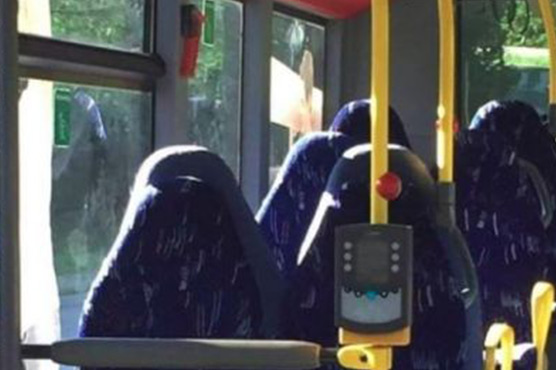How a harmless photo created spark in Norway

The photo, according to the users, was a concrete manifestation of the problems
(Web Desk) Refugee crisis, emanated from the war-torn Middle East after the much trumpeted “Arab Spring”, and exacerbated after 2015, have precipitated unprecedented Xenophobic sentiments among Europeans, The Washington Post reported on Tuesday.
From the rise of Trump to the unprecedented Brexit, from Le Pen in France to the elevation of right wing parties across the European continent, the tentacles of ethnocentrism, Islamophobia and Xenophobia have spread in every nook and canny of the erstwhile pluralistic Occident.
This spectre of racism has not spared even the most stoic parts of North-Western Europe: Scandinavia. Last week, a Norwegian journalist posted a photo on an anti-immigrant private Facebook group called ‘Fatherland first’, showing six burqa-clad women occupying a bus seats.
The photo, according to the users, was a concrete manifestation of the problems facing Norway after a prodigious influx of Muslim refugees.
The only problem is that those bus seats were not occupied by any group of women, let alone burqa wearing one. The photo, in fact, captured vacant seats only, appearing as though some women wearing burqas are travelling around, due to the colour of the seat covers and a shadow further blurring the difference.
More than 100 group members commented that it was scary to see burqa-clad women roaming around our streets, as they could be terrorists, hiding firearms under cover. Some users even shared the photo to further instigate their likeminded, right wing, friends. The photo managed to attract over 3,000 likes, hundreds of comments and a whopping 1,600 shares.
Norway is among the countries in Europe that have recently proposed actions restricting wearing of burqa and niqab. Critics opine that such restrictions may further isolate already cornered Muslim immigrants, not to mention their potential to create dangerous stereotypes, as manifested in the aforementioned photo saga.


